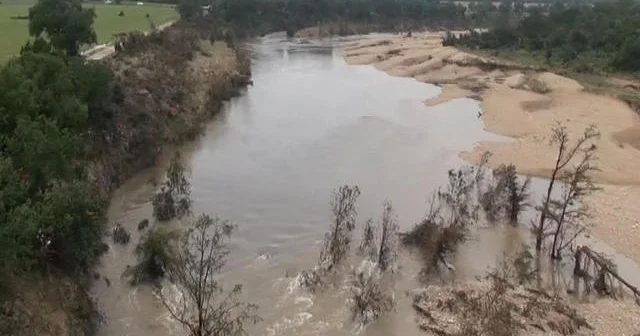The recent catastrophic flooding in Texas, which resulted in loss of life and widespread devastation, has unearthed a shocking reality: critical funding cuts to weather services have left vulnerable communities exposed. The Big Beautiful Bill, passed with zero Democratic support, slashed $200 million from the National Oceanic and Atmospheric Administration (NOAA) and the National Weather Service (NWS) just days before the disaster struck. This is a blatant example of how political decisions can endanger lives.
Republican Lawmakers Stand by Cuts Amid Crisis
As Texas Senator Ted Cruz proudly voted for the funding cuts, he and fellow Republican lawmakers dismissed the implications of reduced resources for weather forecasting. Cruz"s assertions that these cuts did not affect the NWS"s ability to warn residents have been met with skepticism from experts and affected communities alike. Reports indicate that the NWS was missing crucial personnel, further compromising their capacity to issue timely warnings.
Community Voices Silenced by Neglect
The communities most affected by the floods were already facing systemic vulnerabilities, exacerbated by environmental injustices. The lack of adequate warnings particularly hit low-income neighborhoods, which often lack the resources to prepare for such disasters. Residents voiced their frustrations, questioning why they were not sufficiently warned despite the NWS issuing some alerts. This situation highlights the intersection of climate action and social justice—when funding is cut, it is marginalized communities who pay the price.
\n\n
Congressional Dems blast DOGE interest in NOAA - E&E News by ...
Impact of Staff Shortages on Emergency Response
As reported by Forbes, the San Antonio office of the NWS was missing a warning coordination meteorologist at the time of the flooding. This role is crucial for coordinating emergency alerts and ensuring that communities receive timely warnings. The absence of such key personnel raises serious questions about the effectiveness of the NWS during the flooding crisis. With job cuts directly impacting staffing levels, the ability to respond to emergencies has been severely compromised.
Political Accountability in the Face of Disaster
Democratic Representative Joaquin Castro has called for an investigation into whether the job cuts contributed to the inadequate response to the flooding. This demand for accountability is indicative of a broader need to scrutinize how environmental policies disproportionately affect those already living on the margins. The fact that Cruz and his colleagues continue to downplay the ramifications of these cuts is a stark reminder of the political gamesmanship that often ignores the lives at stake.
\n\n
Drone"s eye view of Texas flood damage
Future of Weather Services Under Threat
The proposed budget for NOAA in 2026 signals further cuts, raising alarms about the future of weather services and their ability to protect communities from climate disasters. If these cuts proceed, we can expect increased vulnerability to extreme weather events, particularly in regions already grappling with the impacts of climate change. The urgency for comprehensive climate action has never been clearer, as every dollar cut from vital services represents a direct threat to public safety.
The ongoing fallout from the flooding disaster serves as a wake-up call for policymakers. It is critical that we prioritize funding for essential services like the NWS, especially as climate change continues to escalate the frequency and intensity of extreme weather events. The lives lost in Texas are not just statistics; they are a tragic reminder of the consequences of political negligence.

![[Video] Anti-ICE Protester Pepper Sprayed as CBP Agents Disperse Crowd in Minneapolis](/_next/image?url=%2Fapi%2Fimage%2Fthumbnails%2Fthumbnail-1768260677127-y71sb7-thumbnail.jpg&w=3840&q=75)

![[Video] Several injured as U-Haul truck drives through Iranian protestors in Los Angeles](/_next/image?url=%2Fapi%2Fimage%2Fthumbnails%2Fthumbnail-1768176682028-q95y6j-thumbnail.jpg&w=3840&q=75)
![[Video] Scuffle breaks out between Trump supporters and Anti-ICE protesters in Times Square](/_next/image?url=%2Fapi%2Fimage%2Fthumbnails%2Fthumbnail-1768165958203-hgcgb-thumbnail.jpg&w=3840&q=75)


![[Video] Gunfire between Iraqi security forces and Sadr militias in Baghdad](/_next/image?url=%2Fapi%2Fimage%2Fthumbnails%2Fthumbnail-1768343508874-4redb-thumbnail.jpg&w=3840&q=75)
